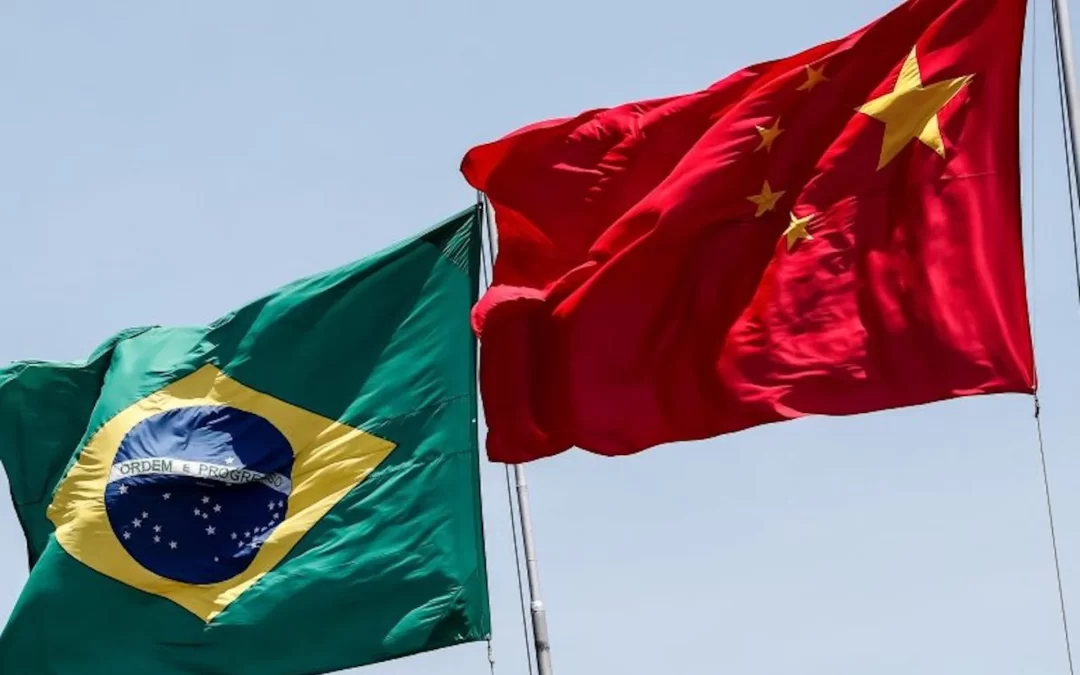The agreements also refer to areas of trade, infrastructure and science and technology, among others
The governments of Brazil and China will announce a series of bilateral acts and memoranda of understanding in the areas of agriculture, trade, investment, infrastructure, industry, finance and science and technology next week.
The agreements will be announced during the visit of Chinese President Xi Jinping to Brazil on the 20th, when he will be received by the President of the Republic, Luiz Inácio Lula da Silva, in Brasília.
“There are synergies between the development policies and investment programs of Brazil and China focused on finance, infrastructure, development of production chains, ecological transformation and technology that could benefit the New PAC, New Industry Brazil, ecological transition plan and South American integration routes programs,” said the Secretary for Asia and the Pacific of the Ministry of Foreign Affairs, Eduardo Paes Saboia, in a conversation with the press about the state visit.
Regarding Brazil’s adherence to the Chinese initiative known as the “New Silk Road”, the ambassador did not go into detail. Despite saying that the subject would not be “taboo” and that the joint declaration between Brazil and China approved last year deals with “deepening synergies”, Saboia stated that he would not give “spoilers” on the topic. “The focus is on synergy, on adding value, on energizing to create results that benefit our countries”, he said.
Investments from China
According to the ambassador, protocols are being negotiated for the export of more Brazilian agricultural products to China for Xi Jinping’s visit. Another pillar is investments.
Saboia stated that the Brazilian government intends to see an “even more robust” presence of Chinese investments here, particularly in infrastructure and industrial production capacity. “The visit will present government initiatives to increase contacts in these areas. Of the 93 Chinese industrial projects in Brazil, the automotive, electronics, and machinery and equipment industries stood out the most,” the secretary commented.
In the area of finance, Saboia highlighted that, since Lula’s visit to China in 2023, there has been an effort to bring the segment closer together. According to him, initiatives are being developed by the National Bank for Economic and Social Development (BNDES), the Ministry of Finance, and B3 with financing lines, project co-financing, and the possibility of trading Brazilian funds on Chinese stock exchanges and vice versa.
In the science, technology, and innovation pillar, the ambassador stated that the bilateral operation has advanced toward research in new areas such as clean energy sources, nanotechnology, and information and communication technologies. “And the MCTI has developed initiatives with its Chinese counterparts to establish cooperation in the photovoltaic industry, nuclear technology, artificial intelligence, and mechanization and intelligence of family farming,” he said.
The ambassador also classified the Chinese leader’s visit as the “high point” of the celebration of half a century of diplomatic relations. “Brazil and China are key players in the global governance reform process. In addition to the political relationship, there is a first-rate trade relationship. The visit will serve to reiterate Brazil’s efforts to continue and increase bilateral trade figures and diversify the trade agenda with Brazilian products with higher added value,” he said. He was also asked about how Donald Trump’s election to a new term in the United States starting next year could influence the relationship between Brazil and China. Saboia responded, in turn, that the connection between the countries has already spanned “several” US administrations, in various international situations, and in that period “it has only grown stronger.” “We have excellent relations with the United States, and it is Brazil’s strong desire to maintain good and close relations with the United States and China,” he said simply.

